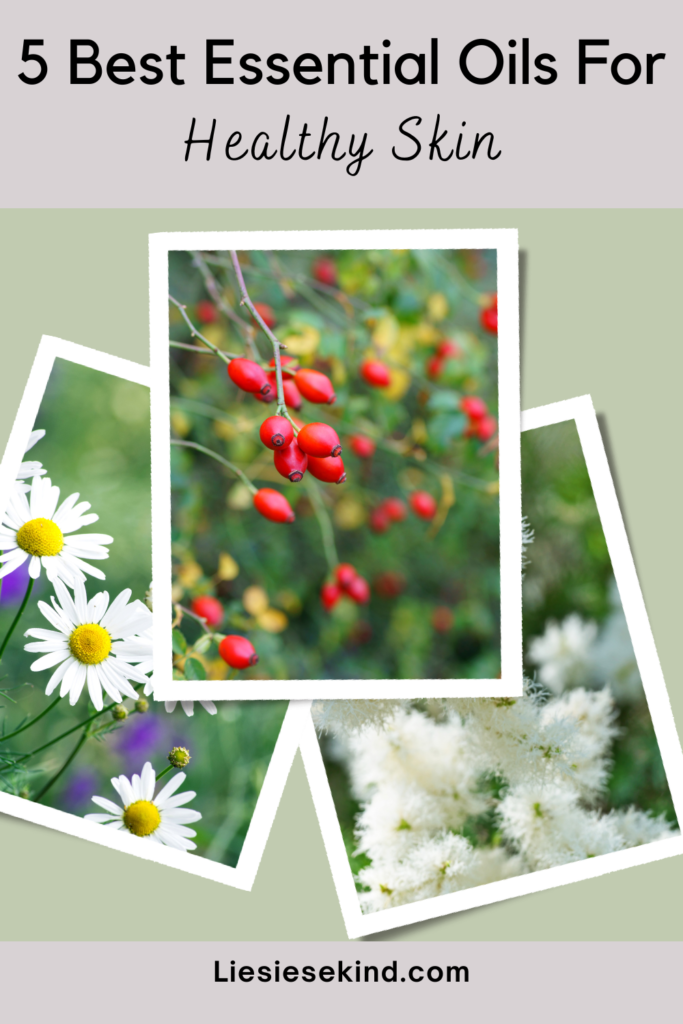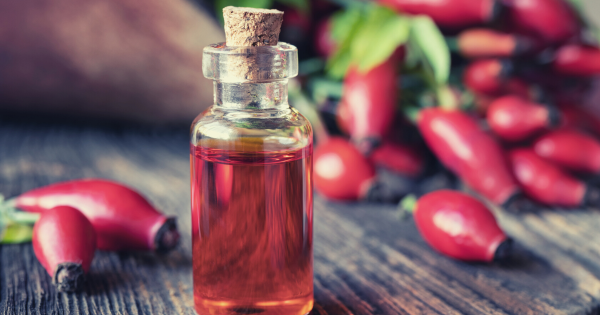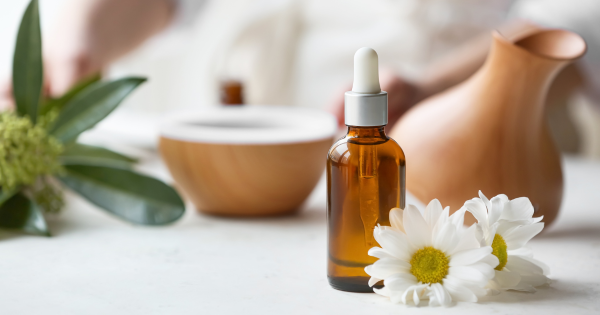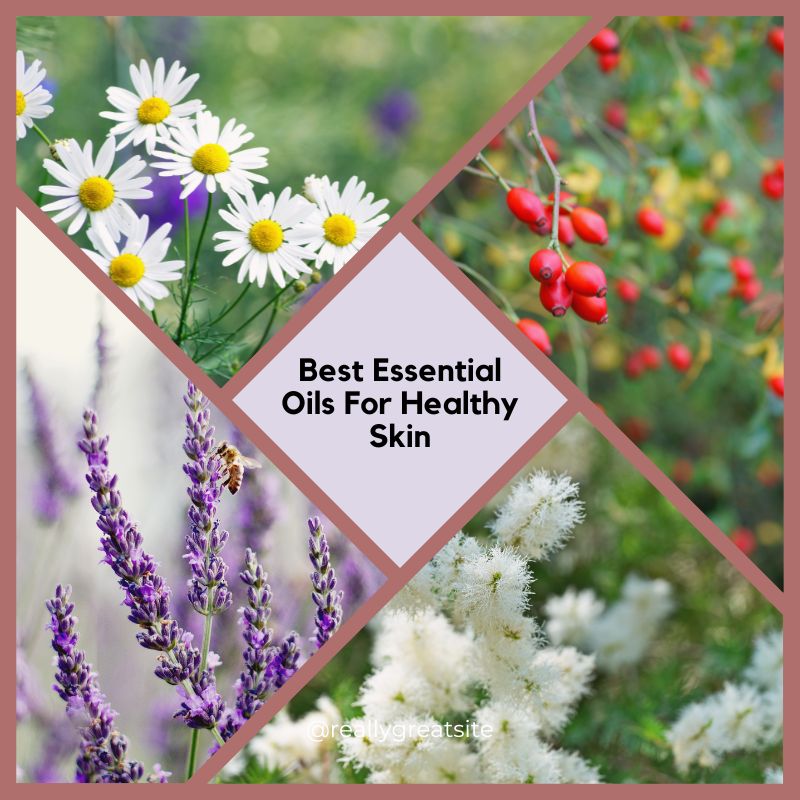Today I am sharing the five best essential oils for healthy skin. Pursuing radiant, youthful skin has been an age-old aspiration among many. In this quest, essential oils have emerged as a natural and effective solution, offering many benefits as far as healthy skin goes.
Extracted from plants, these concentrated oils possess potent properties that nourish, rejuvenate, and restore the skin’s natural glow. This article explores the top essential oils renowned for their exceptional skin care qualities, unveiling their unique attributes and benefits.
5 Best Essential Oils For Healthy Skin

1. Lavender Essential Oil
Lavender essential oil is a versatile powerhouse known for its calming aroma and numerous skincare benefits. With its antibacterial and anti-inflammatory properties, lavender oil can help soothe and heal various skin conditions, including acne, eczema, and dermatitis. Additionally, its gentle nature makes it suitable for sensitive skin.
Lavender oil’s ability to promote skin cell regeneration and balance sebum production contributes to a clearer, more balanced complexion. This oil is also often used in aromatherapy to relieve stress and promote relaxation, offering dual benefits for both mind and skin.
2. Tea Tree Essential Oil
Tea tree essential oil, derived from the Australian native plant, Melaleuca alternifolia, possesses potent antiseptic and antibacterial properties, making it a popular choice for treating acne-prone skin. Its natural antimicrobial action helps combat acne-causing bacteria while reducing inflammation, leading to clearer skin.
Tea tree oil also effectively treats fungal infections, such as athlete’s foot and nail fungus. However, due to its potent nature, diluting tea tree oil before applying it to the skin is crucial to avoid irritation.
Related: 14 Useful Tips For Sensitive Skin

3. Rosehip Essential
Renowned for its exceptional regenerative properties, rosehip essential oil is extracted from the seeds of wild rose bushes. Rich in essential fatty acids, antioxidants, and vitamins A and C, this oil helps reduce the appearance of scars, wrinkles, and hyperpigmentation, promoting a more youthful complexion.
Rosehip oil’s hydrating properties deeply nourish the skin, improving its elasticity and moisture retention. It also contains natural retinoids, which stimulate collagen production, aiding skin cell turnover and combating signs of aging.
4. Frankincense Essential
With a history dating back thousands of years, frankincense essential oil is favored for its rejuvenating and toning effects on the skin. This oil has potent astringent properties, which can help tighten and firm the skin, reducing the appearance of fine lines and wrinkles.
Frankincense oil also has anti-inflammatory properties that soothe irritation and promote healing, making it beneficial for sensitive or acne-prone skin. Its calming aroma offers additional benefits by reducing stress and anxiety, contributing to overall skin health.
Related: 7 Top Essential oils for eczema

5. Chamomile Essential Oil
Chamomile essential oil is derived from chamomile flowers and is cherished for its gentle and soothing nature. Its anti-inflammatory properties help calm and heal irritated skin, making it ideal for sensitive or inflamed skin conditions like rosacea or eczema.
Chamomile oil’s high antioxidant content protects the skin from environmental stressors and supports its natural healing process. Its calming aroma is also widely used in aromatherapy to promote relaxation and better sleep, indirectly benefiting the skin by reducing stress-induced skin issues.
Conclusion
Essential oils offer a natural and holistic approach to skincare, harnessing the power of plant extracts to nourish, protect, and rejuvenate your skin. Lavender, tea tree, rosehip, frankincense, and chamomile are the best essential oils for healthy skin.
From their antibacterial and anti-inflammatory properties to their regenerative and soothing effects, these oils can address various skin concerns, ranging from acne and aging to sensitivity and irritation. However, it is essential to use essential oils responsibly, ensuring proper dilution and patch testing to avoid adverse reactions.





Be the first to reply